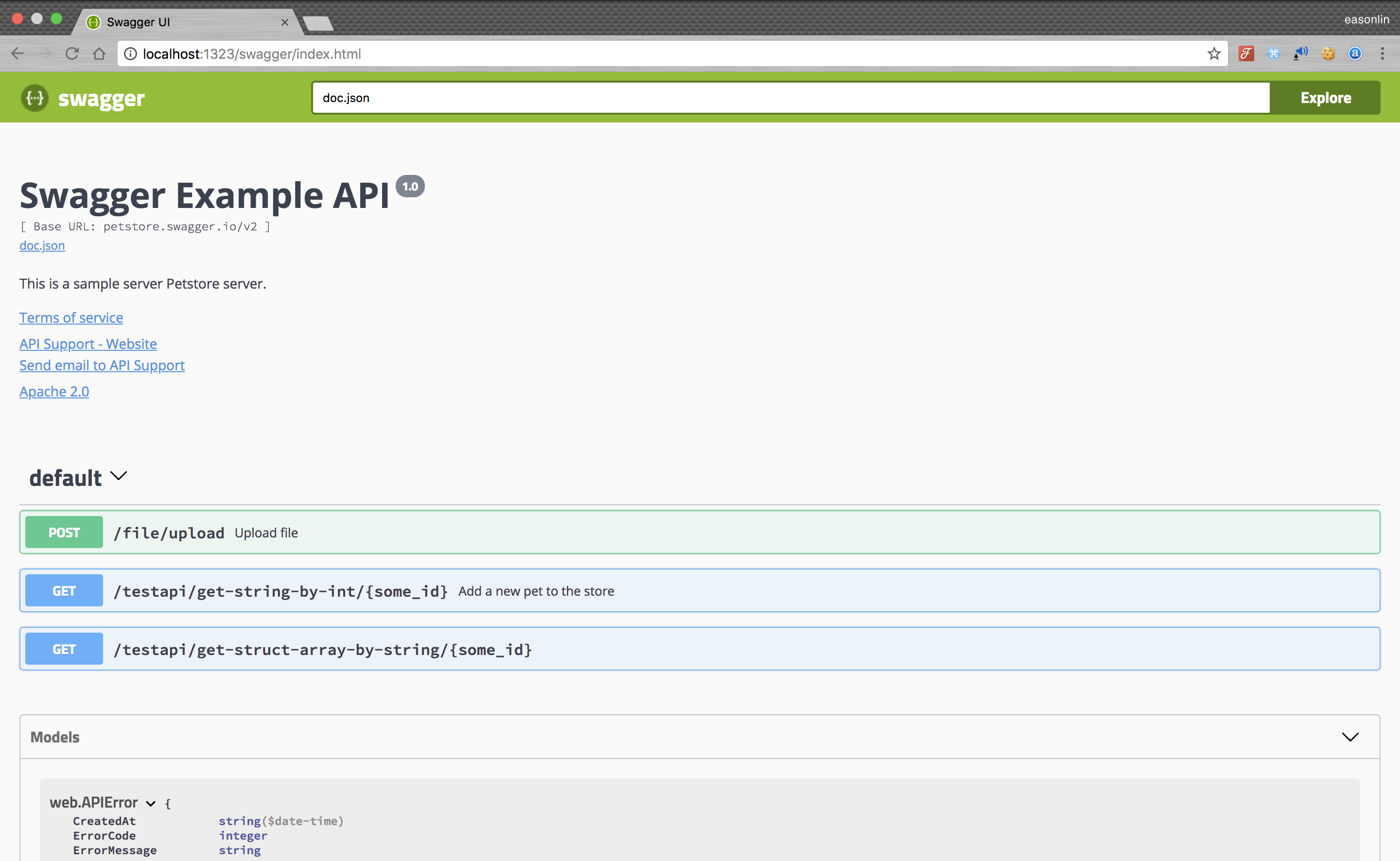buffalo-swagger
Buffalo middleware to automatically generate RESTful API documentation with Swagger 2.0.
Usage
Start using it
- Add comments to your API source code, See Declarative Comments Format.
- Download Swag for Go by using:
$ go get github.com/swaggo/swag/cmd/swag- The General API annotation lives in
actions/app.go, run Swag in your Buffalo project root folder with the flag-g actions/app.go. Swag will parse comments and generate required files(docsfolder anddocs/doc.go).
$ swag init -g actions/app.go4.Download buffalo-swagger by using:
$ go get -u github.com/swaggo/buffalo-swaggerAnd import following in your actions/app.go code, making sure to modify the last package name properly:
import(
buffaloSwagger "github.com/swaggo/buffalo-swagger"
"github.com/swaggo/buffalo-swagger/swaggerFiles"
_ "github.com/<github_name>/<project_name>/docs"
)Canonical example:
For a complete example take a look at the example directory
Below you can find an extract from actions/app.go
package actions
import(
buffaloSwagger "github.com/swaggo/buffalo-swagger"
"github.com/swaggo/buffalo-swagger/swaggerFiles"
_ "github.com/swaggo/buffalo-swagger/example/docs"
)
[...]
var app *buffalo.App
// @title Swagger Example API
// @version 1.0
// @description This is a sample server Petstore server.
// @termsOfService http://swagger.io/terms/
// @contact.name API Support
// @contact.url http://www.swagger.io/support
// @contact.email support@swagger.io
// @license.name Apache 2.0
// @license.url http://www.apache.org/licenses/LICENSE-2.0.html
// @host petstore.swagger.io
// @BasePath /v2
func App() *buffalo.App {
if app == nil {
app = buffalo.New(buffalo.Options{
Env: ENV,
SessionStore: sessions.Null{},
PreWares: []buffalo.PreWare{
cors.Default().Handler,
},
SessionName: "_example_session",
})
app.GET("/", HomeHandler)
app.GET("/swagger/{doc:.*}", buffaloSwagger.WrapHandler(swaggerFiles.Handler))
}
return app- Run it, and browse to http://localhost:3000/swagger/index.html, you can see Swagger 2.0 Api documents.
